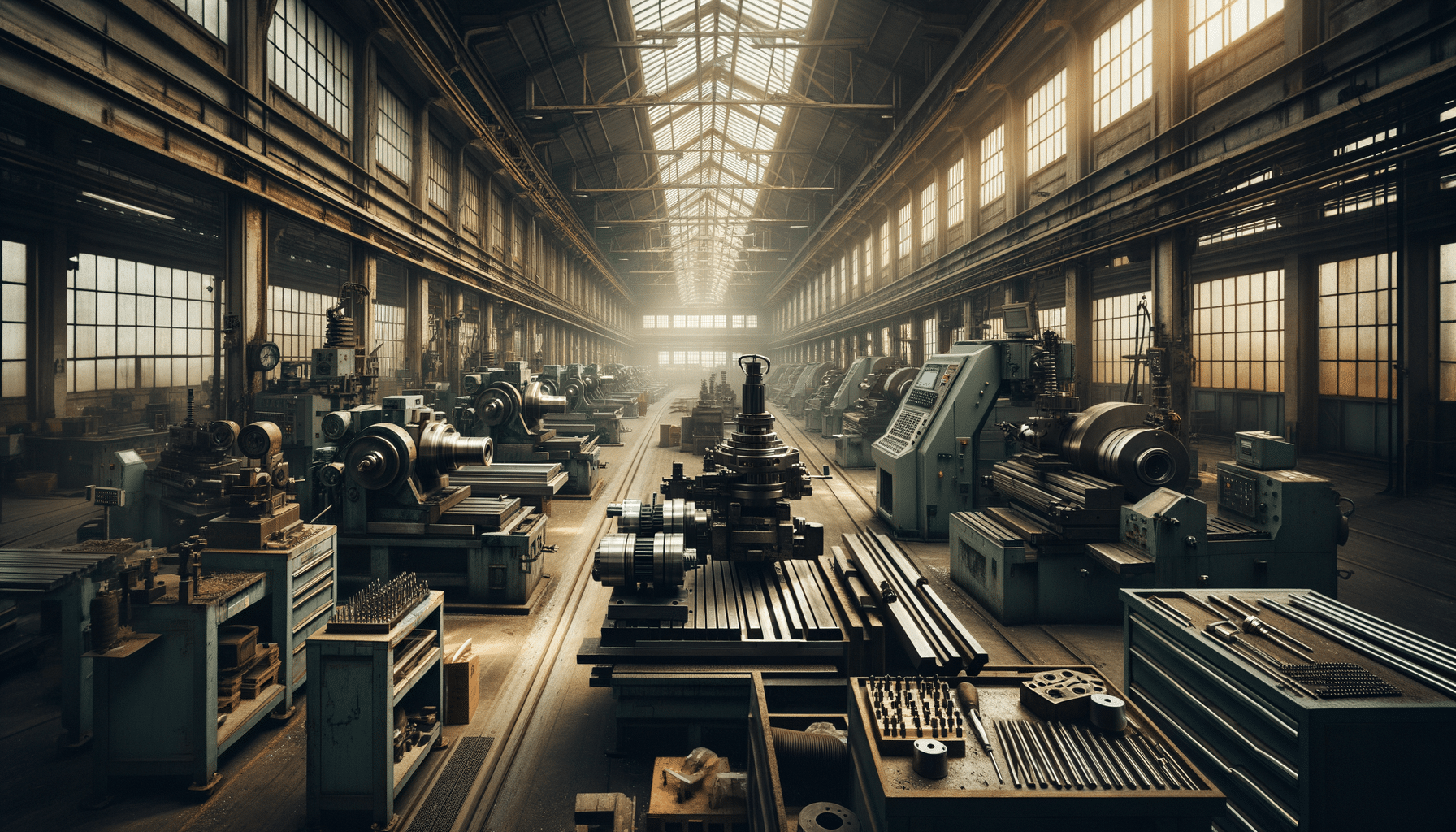
Industrial Machines: What Businesses Should Know
The Significance of Industrial Machines in Modern Manufacturing
Industrial machines are fundamental to the manufacturing and production sectors, playing a crucial role in shaping modern economies. These machines range from simple tools to highly complex systems that automate entire production lines. The efficiency of industrial machines directly impacts a company’s productivity, cost-effectiveness, and ability to compete in a global market.
The use of advanced machinery allows businesses to produce goods at a scale and speed that would be impossible by manual methods. By optimizing machine efficiency, companies can reduce waste, minimize downtime, and ensure consistent product quality. This not only satisfies consumer demand but also enhances the company’s reputation in the industry.
Moreover, with the advent of Industry 4.0, the integration of digital technologies with industrial machines has become increasingly prevalent. This includes the use of sensors, IoT devices, and data analytics to monitor and improve machine performance continually. Such innovations are vital for businesses aiming to remain competitive and responsive to market changes.
Types of Industrial Machines and Their Applications
Industrial machines come in various forms, each designed for specific tasks within the manufacturing process. Understanding these types and their applications is essential for businesses to select the right equipment for their needs.
Some common categories include:
- Material Handling Equipment: These machines, such as conveyors and forklifts, are used to move materials within a facility efficiently.
- Metalworking Machines: This category includes lathes, milling machines, and CNC machines, which are crucial for shaping and cutting metal parts.
- Packaging Machines: These machines automate the packaging process, ensuring products are ready for distribution quickly and safely.
- Textile Machines: Used in the production of fabrics and clothing, these machines include looms and knitting machines.
Each type of machine is designed to enhance efficiency in its specific application, contributing to the overall productivity of the manufacturing process.
Factors Influencing the Efficiency of Industrial Machines
Several factors can influence the efficiency of industrial machines. Understanding these can help businesses make informed decisions about equipment investments and maintenance strategies.
Machine Design and Technology: The design of a machine and the technology it incorporates are primary determinants of its efficiency. Modern machines often integrate advanced technologies that optimize performance and reduce energy consumption.
Maintenance Practices: Regular maintenance is crucial to ensure machines operate at peak efficiency. This includes routine inspections, timely repairs, and the replacement of worn-out parts.
Operator Training: Well-trained operators are essential for maximizing machine efficiency. Proper training ensures that machines are used correctly and safely, minimizing the risk of errors and accidents.
Environmental Conditions: The environment in which machines operate can affect their efficiency. Factors such as temperature, humidity, and cleanliness must be controlled to prevent machine degradation.
Economic Implications of Efficient Industrial Machines
The economic implications of efficient industrial machines are significant. Businesses that invest in high-efficiency machines often see substantial cost savings in the long term. These savings can result from reduced energy consumption, lower maintenance costs, and increased production output.
Moreover, efficient machines can lead to improved product quality, which enhances customer satisfaction and loyalty. This can translate into increased sales and market share, further boosting the company’s profitability.
Additionally, efficient machines contribute to sustainability efforts by reducing waste and minimizing the environmental impact of manufacturing processes. This aligns with the growing consumer demand for environmentally responsible products and can enhance a company’s brand image.
Selecting the Right Supplier for Industrial Machines
Choosing the right supplier for industrial machines is a critical decision that can impact a business’s operations and success. When selecting a supplier, businesses should consider factors such as the supplier’s reputation, the quality of their products, and their after-sales support.
A reputable supplier will offer machines that meet industry standards and have a proven track record of reliability. It is also important to consider the supplier’s ability to provide timely maintenance and repair services, as this can minimize downtime and ensure continuous production.
Furthermore, businesses should evaluate the supplier’s ability to offer customized solutions that meet their specific needs. This includes assessing the supplier’s technical expertise and willingness to collaborate on innovative projects.
Ultimately, selecting the right supplier can lead to long-term partnerships that drive business growth and innovation.
